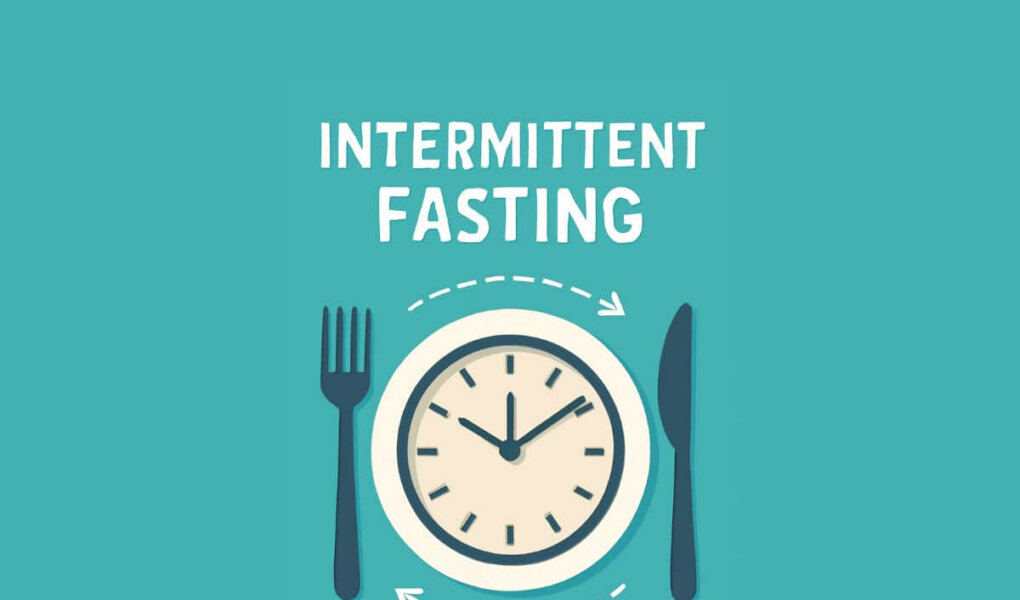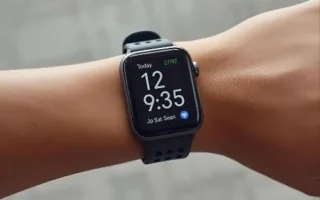Intermittent fasting (IF) has become a buzzword in the health and wellness community. It’s a trend that promises everything from weight loss and improved metabolic health to a longer life and better cognitive function.
But is it truly worth the hype, or is it just another passing fad? In this article, I’ll break down the yes vs no debate surrounding intermittent fasting, examining both its benefits and drawbacks, and ultimately helping you decide if it’s the right choice for you.
What is Intermittent Fasting?
Before diving into the pros and cons, let’s define intermittent fasting. Simply put, intermittent fasting is an eating pattern that alternates between fasting (not eating) and eating. The focus here isn’t on what you eat, but on when you eat. It’s not about choosing specific foods, but about restricting the time frame in which you consume them.
Here are some of the most common methods:
- The 16/8 method: Fast for 16 hours and eat during an 8-hour window. For example, you might eat between 12:00 PM and 8:00 PM, skipping breakfast entirely.
- The 5:2 method: Eat normally for five days of the week, and drastically cut calories (to around 500–600 calories) on the remaining two days.
- Alternate-day fasting: Eat normally on one day, and restrict or avoid food the next day. This cycle repeats throughout the week.
Now that we know what intermittent fasting is, let’s break down its yes vs no appeal.
The “Yes” Side: The Benefits of Intermittent Fasting
When it comes to intermittent fasting, the yes side is filled with glowing reports of remarkable health improvements. Imagine your body as a car engine—it’s bound to work more efficiently when given a chance to rest and rejuvenate. In the same way, intermittent fasting allows your body to repair, reset, and optimize itself. Let’s dive deeper into why intermittent fasting might be worth trying.
1. Effective Weight Loss
- Metabolic Switching: One of the key benefits of intermittent fasting is its ability to switch your metabolism from burning sugar to burning fat. When you fast, your body exhausts its glycogen stores and begins breaking down fat for fuel, similar to how the Ketogenic Fat Loss Diet 101 works by inducing a state of ketosis. This makes fasting, alongside a ketogenic diet, a powerful tool for weight loss and fat reduction.
- Calorie Control Without Counting: One of the biggest challenges in any diet is counting calories. With intermittent fasting, you don’t have to obsess over how many calories you’re consuming. By restricting your eating window, you naturally reduce calorie intake without much effort.
- Increased Fat Burning: Studies have shown that intermittent fasting boosts the release of norepinephrine, a fat-burning hormone. This hormonal increase leads to higher fat oxidation, helping you shed fat more effectively.

- Intermittent fasting can impact your hair care if you don’t get enough essential nutrients during eating windows. Deficiencies in vitamins like biotin, vitamin E, and zinc can affect hair health. To keep your hair strong, focus on nutrient-dense foods such as leafy greens, lean proteins, and healthy fats while fasting.
2. Improved Insulin Sensitivity
- Combat Type 2 Diabetes: One of the most compelling reasons to try intermittent fasting is its impact on insulin sensitivity. Insulin is a hormone that helps your body process sugar. During fasting periods, your body becomes more sensitive to insulin, which allows it to process sugar more efficiently. This helps lower the risk of type 2 diabetes and improve blood sugar control.
- Lower Insulin Levels: Fasting can significantly reduce insulin levels, which not only helps with diabetes prevention but also contributes to better fat burning. When insulin levels are low, the body has easier access to stored fat for energy.
3. Heart Health Benefits
- Lower Cholesterol and Triglycerides: Research has shown that intermittent fasting can help reduce cholesterol and triglyceride levels, both of which are important for heart health. By reducing these risk factors, fasting may help prevent cardiovascular disease.
- Improved Blood Pressure: High blood pressure is a major risk factor for heart disease and stroke. Intermittent fasting has been linked to a reduction in blood pressure, which helps support heart health and overall well-being.
- Reduced Inflammation: Inflammation is often the root cause of many chronic diseases, including heart disease. Intermittent fasting has been shown to reduce markers of inflammation, which contributes to a healthier cardiovascular system.
3. Health Optimization with Supplements
- While intermittent fasting can work wonders on its own, combining it with Pineal 10x Supplements can enhance your results. These supplements are designed to support the pineal gland, which plays a crucial role in regulating hormones, including melatonin.By improving hormonal balance and boosting energy levels, Pineal 10x Supplements can help optimize your fasting benefits, supporting overall well-being during your fasting routine. This combination can help you maximize your health benefits, including better sleep, mental clarity, and improved mood.
4. Brain Health and Cognitive Function
- Brain-Derived Neurotrophic Factor (BDNF): When you fast, your brain produces more BDNF, a protein that supports neuron growth and protects the brain from neurodegenerative diseases. Higher levels of BDNF have been linked to improved cognitive function and protection against Alzheimer’s disease and other forms of dementia.
- Improved Mental Clarity: Many people report feeling mentally sharper and more focused during fasting periods. This may be because fasting improves brain function by promoting the growth of new neurons and enhancing the brain’s overall health.
5. Longevity and Aging
- Cellular Repair: Intermittent fasting can trigger a process called autophagy, where the body breaks down and removes damaged cells. This helps rejuvenate the body’s cells and prevents the accumulation of cellular damage, which is linked to aging and chronic diseases.
- Potential for Longer Life: Some animal studies have shown that intermittent fasting can extend lifespan. While more research is needed in humans, the early evidence suggests that intermittent fasting may contribute to a longer, healthier life.
- Supports Anti-Aging Hacks: Intermittent fasting complements many anti-aging hacks by promoting hormonal balance, reducing oxidative stress, and enhancing mitochondrial function. It works synergistically with longevity practices like cold therapy, mindfulness, and proper supplementation to help slow the visible and biological effects of aging.
6. Simplicity and Flexibility
- One of the reasons many people love intermittent fasting is that it’s relatively simple to follow. Unlike calorie-counting or restrictive diets, you don’t have to worry about planning and tracking every meal. It’s all about when you eat, not what you eat.
- Flexible Lifestyle: You can choose the fasting method that best fits your lifestyle. Whether it’s the 16/8 method or the 5:2 method, intermittent fasting can be tailored to suit your daily routine and goals.
The “No” Side: Potential Risks and Drawbacks of Intermittent Fasting
While intermittent fasting has its fair share of benefits, it’s not without its risks. Like any dietary strategy, intermittent fasting has potential downsides that need to be considered before jumping in. Think of it like a new fitness routine: it might be great for your health, but it also requires care and attention to avoid injury.
1. Risk of Nutrient Deficiency
- Potential for Imbalanced Diet: If you’re not careful, intermittent fasting can lead to nutrient deficiencies. By eating in a limited time window, it may become harder to consume all the necessary vitamins, minerals, and nutrients your body needs to stay healthy.
- Limited Food Intake: Depending on the fasting protocol you follow, you may find it difficult to get enough calories and nutrients in just a short eating window. To prevent deficiencies, focus on nutrient-dense, whole foods during your eating periods.
- Fast Food Trap: While fast food is quick and convenient, it’s often packed with unhealthy fats, sugars, and sodium. If you rely on fast food during your eating window, you risk missing out on essential nutrients, which could negate the health benefits of intermittent fasting and lead to poor long-term results.

2. Muscle Loss
- Reduced Muscle Mass: If you’re fasting for extended periods without consuming enough protein, your body may begin to break down muscle for fuel, especially if you’re not engaging in strength training. This could lead to muscle loss, which is counterproductive if you’re trying to improve your overall fitness or physique.
- Lowered Metabolic Rate: Muscle loss can also decrease your metabolic rate, making it harder to maintain weight loss over time.
3. Increased Hunger and Irritability
- Adjusting to the Hunger: In the beginning, it’s common to feel more hungry or irritable while your body adjusts to fasting. For some people, this can be challenging, leading to overeating during eating windows or abandoning the practice altogether.
- Difficulty Staying Consistent: As hunger pangs intensify during fasting periods, you might find it hard to stick to your fasting schedule.
4. Potential for Overeating
- The Bingeing Effect: Some people experience the urge to overeat during their eating windows, especially after a long fast. This can quickly undo the calorie-reduction benefits of fasting, leading to weight gain instead of loss.
- Psychological Impact: For individuals prone to disordered eating patterns, intermittent fasting can exacerbate unhealthy relationships with food.
5. Not Suitable for Everyone
- Health Conditions: If you have certain health conditions such as diabetes, heart disease, or a history of eating disorders, intermittent fasting may not be the right choice for you. Always consult with a healthcare provider before starting any new eating plan.
- Age Considerations: Intermittent fasting may not be suitable for older adults, children, or pregnant and breastfeeding women due to the potential impact on hormonal balance and nutritional needs.
6. Social Life Disruptions
- Family and Social Gatherings: Intermittent fasting might interfere with social events and family meals, especially if the eating windows don’t align with social gatherings. This can make fasting harder to maintain in the long run.
Yes vs No – Intermittent Fasting
| Aspect | Yes – Benefits | No – Risks |
|---|---|---|
| Weight Loss | Helps burn fat by switching to fat-burning mode | Can lead to muscle loss if not properly managed |
| Simplicity | Easy to follow, no need to track calories | May increase hunger and irritability in the early stages |
| Metabolism | Boosts metabolic rate and insulin sensitivity | Overeating during the eating window can negate benefits |
| Health Benefits | Lowers cholesterol, blood pressure, improves brain health | Potential for nutrient deficiencies if not balanced |
| Flexibility | Can fit easily into your lifestyle | May interfere with social events or family meals |
| Sustainability | Long-term benefits in weight management and disease prevention | May not be sustainable for some people long-term |
How to Get Started with Intermittent Fasting
If you’re considering intermittent fasting, here are some tips to get you started:
- Start Slowly: Ease into fasting by starting with a 12-hour fasting window before progressing to longer periods.
- Stay Hydrated: Drink plenty of water throughout the day to stay hydrated, especially during fasting periods.
And if you’re following the 16/8 method, your eating window might start at noon and end at 8 p.m. This leaves you with a limited amount of time to get all the nutrients your body needs. Quick lunches can help you stay on track without overcomplicating your meals. Opt for protein-packed salads, whole grain wraps, or a quinoa bowl with veggies and lean protein—all of which are nutritious and easy to prepare in minutes.
Additionally, a Sunday routine can help you stay organized for the week ahead. Use Sundays to plan your fasting schedule, prep meals, and ensure your kitchen is stocked with healthy foods. This way, you’re setting yourself up for success and making sure you avoid the temptation of fast food or unhealthy snacks when you’re hungry during the week.
FAQs About Intermittent Fasting
1. Is intermittent fasting safe for everyone?
No, intermittent fasting is not for everyone. It’s important to consult with a healthcare provider before starting IF, especially if you have preexisting conditions such as diabetes, heart disease, or eating disorders.
2. Can intermittent fasting help with weight loss?
Yes, intermittent fasting can help with weight loss by promoting fat-burning and reducing calorie intake without the need for constant calorie tracking.
3. Will I feel tired during intermittent fasting?
Yes, it’s normal to feel tired or experience hunger, especially in the beginning. However, this typically lessens once your body adjusts to the new eating pattern.
4. Can I drink water or coffee while fasting?
Yes, water, black coffee, and other non-caloric beverages are generally allowed during fasting periods. They can even help suppress appetite and keep you hydrated.
5. How long should I fast each day?
The most common approach is the 16/8 method, fasting for 16 hours and eating during an 8-hour window. You can start with shorter fasts and gradually increase as your body adjusts.
6. Can intermittent fasting improve brain function?
Yes, studies suggest that intermittent fasting may improve cognitive function, memory, and even protect the brain from neurodegenerative diseases.
Conclusion: Is Intermittent Fasting Worth It?
After weighing the yes and no sides, it’s clear that intermittent fasting offers a wide range of benefits, from weight loss to improved health markers like blood sugar and heart health. However, it’s not without its risks, especially if not done properly.
If you’re someone who can stick to an eating window and doesn’t mind the idea of fasting for a portion of the day, intermittent fasting could be a great way to boost your health. Just be mindful of its potential downsides and consult a doctor if you have any underlying health issues.
In the end, intermittent fasting can be a powerful tool for many—but like any diet or lifestyle change, it’s crucial to choose what works best for you, and sometimes an inspiring quote is the reminder you need to stay consistent.



